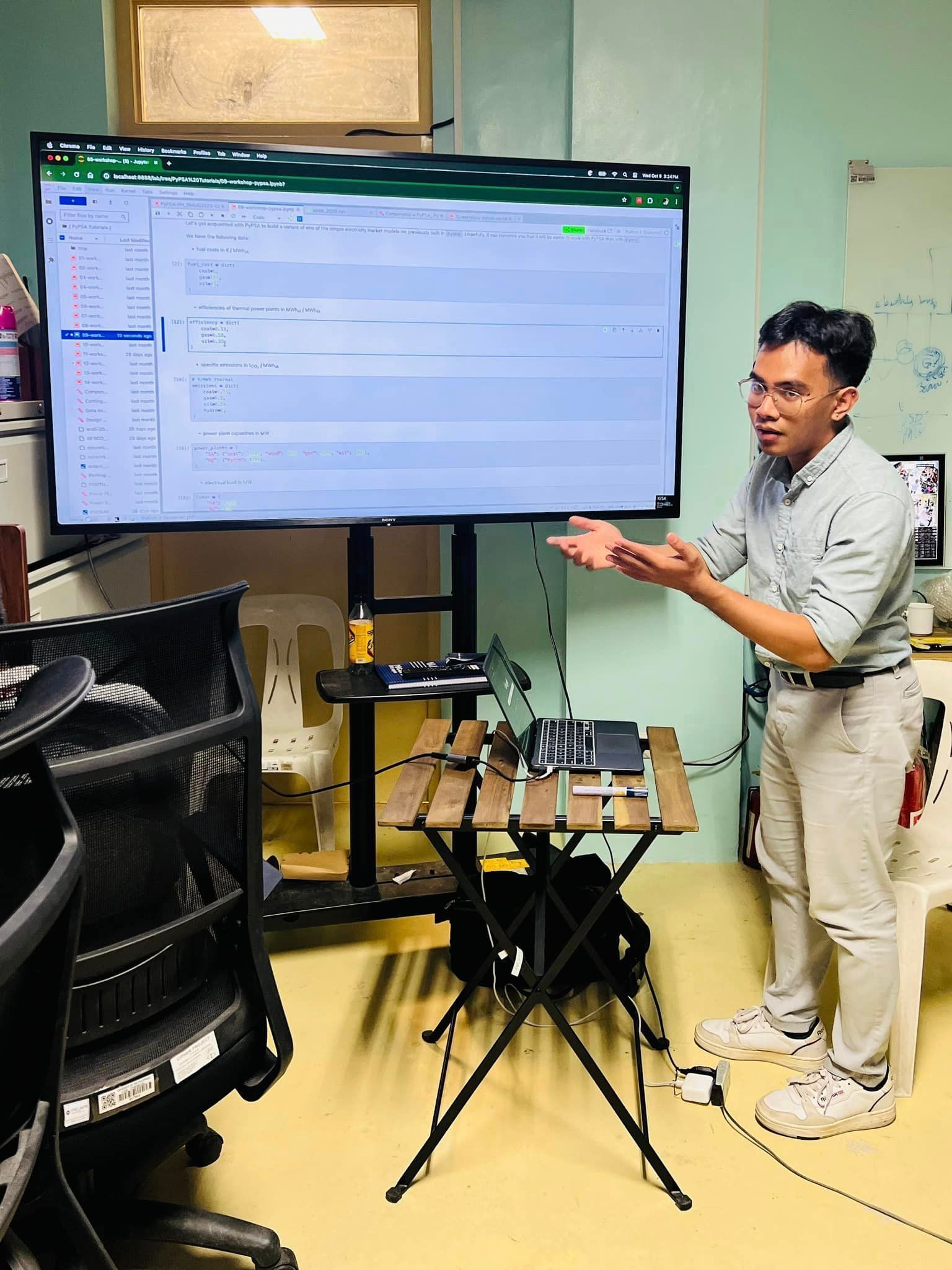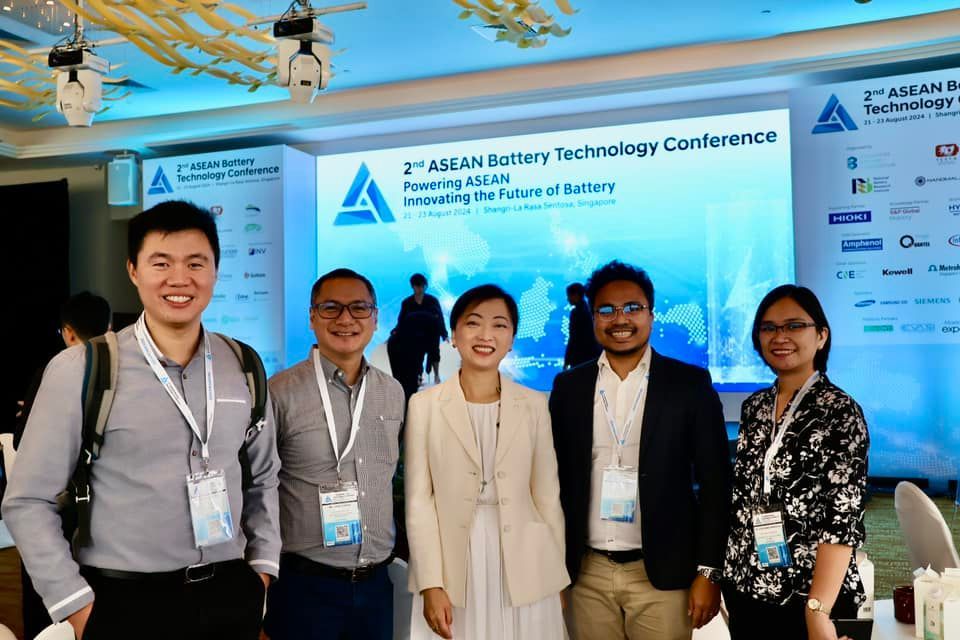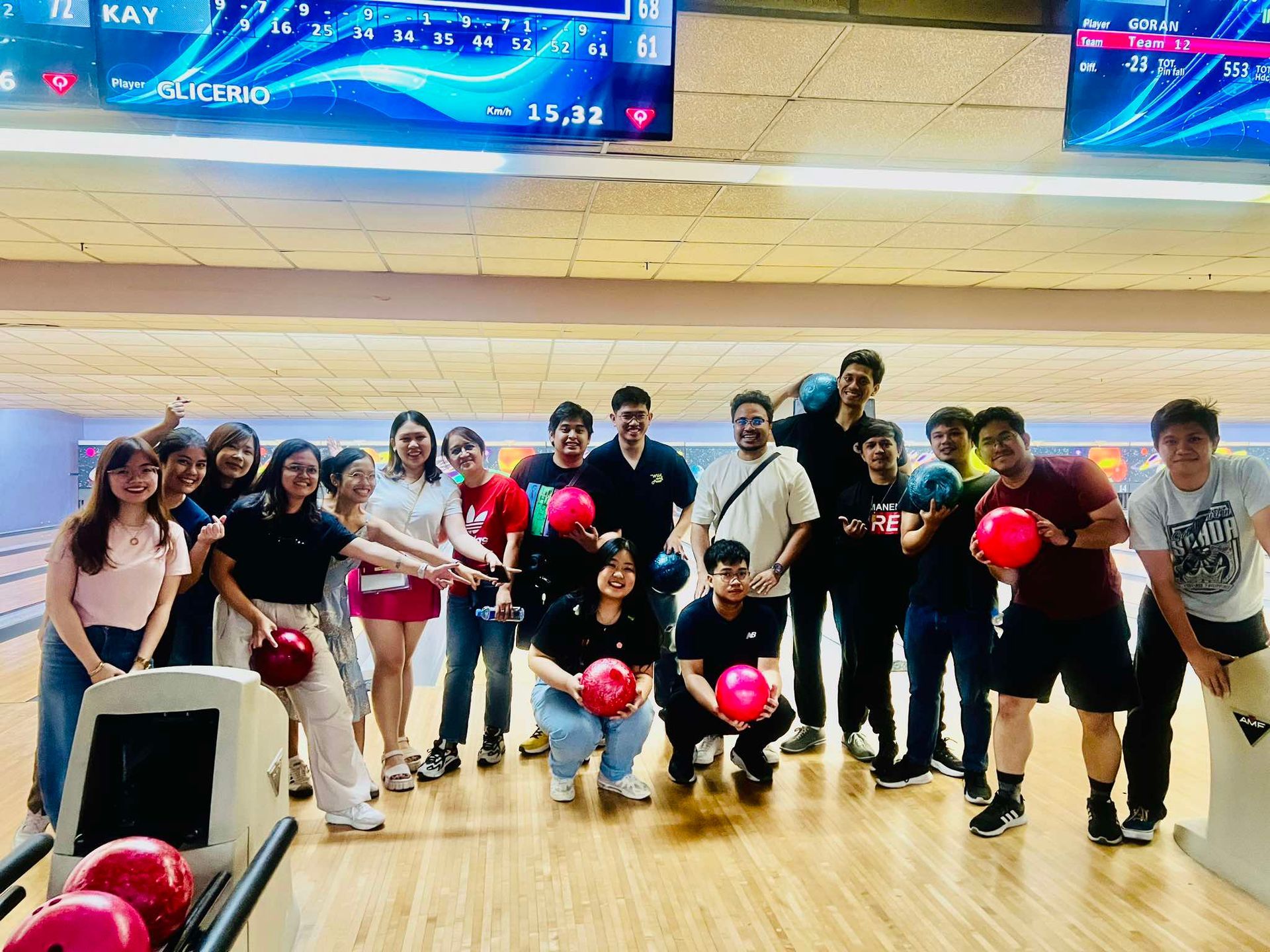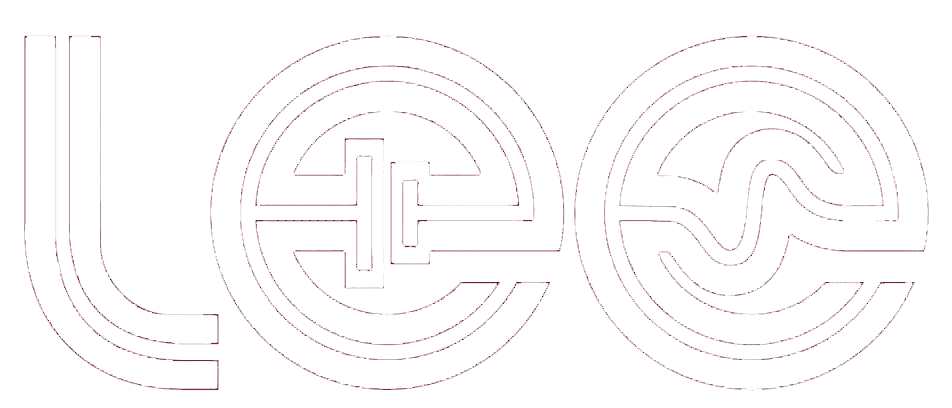LEE's Teal Team wins 2nd Place in the UPD COE Undergraduate Project Competition
December 14, 2022

Members of the Laboratory of Electrochemical Engineering (LEE) bagged 2nd place in the Design Project Category of the Undergraduate Project Competition (UPC) of the University of the Philippines Diliman (UPD) College of Engineering (COE). The “Teal Team” was composed of John D. Cagape, Kim Andrei R. Danganan, and Chrissen Juvileen D. Galang. They were mentored by LEE members Goran Tomacruz and Michael Castro, and advised by Prof. Joey D. Ocon. The team presented their work last July 22, 2022.
The team presented their work entitled Techno-economics of “Teal” Hydrogen Production via Combined Steam Methane Reforming and Biomass Gasification. Motivated by the global transition towards net-zero greenhouse gas emissions via the use of hydrogen as a clean energy carrier, they proposed a novel teal hydrogen production plant. Hydrogen is conventionally produced through steam-methane reforming with carbon capture, also known as blue H2. On the other hand, hydrogen produced using renewable energy such as biomass resources is known as green H2; however, a full transition to green H2 production in developing countries is costly. A strategy to aid in the smooth transition to low-cost and environmentally friendly H2 production is to augment blue H2 with green H2 production, known as teal H2.
The Teal Team designed a novel, low-cost teal hydrogen (teal H2) production plant, made of a mixture of blue and green H2 technologies, combining steam-methane reforming, rice husk gasification, and carbon capture by monoethanolamine absorption. In their design project, the team simulated the techno-economic potential of five production cases set at a rate of 9,000 kg H2/h with varying natural gas to rice husk contribution ratios using AspenPlus. Their evaluations show that the case with 25:75 (natural gas : rice husk) teal H2 had a levelized cost of 1.06 USD/kg and is cheaper than pure blue and green H2 production by 4.37 and 2.34 USD/kg, respectively. Moreover, in terms of CO2-equivalent emissions, the 25:75 teal H2 case resulted in 0.002 t CO2 -eq/1,000 Nm3 H2 which is 57.10 % and 39.25 % lower than that of pure blue and green H2 production, respectively.
The UPC is an annual competition of top capstone projects by graduating COE undergraduate students. It is divided into the design and research project categories.
The team also published their work in the journal Chemical Engineering Transactions in September 2022. For more details, the manuscript can be accessed through the link

LEE research staff and graduate students participated in an in-house training and workshop on the Python for Power Systems Analysis (PyPSA) toolbox on October 9 and 23, 2024 . The sessions were led by Arizeo Salac (SRS 1, ElectriPHI), who returned from a six-month research sandwich program at the Reiner Lemoine Institute in Berlin, Germany , where he focused on data-driven decision-making and energy systems modeling. The training included a detailed discussion on energy systems modeling, with key topics such as data sources and the representation of energy systems using both conventional and renewable technologies. Participants received hands-on assistance with the software setup and installation, followed by simulation activities that showcased PyPSA’s capabilities in energy and power systems analysis. Mr. Salac also presented his baseline model of the Philippine energy system, which can be utilized for energy transition scenario planning. The event aimed to enhance participants' proficiency with open-source modeling tools, share best practices in modeling, and support their research in energy systems. Article by: Sophia Lunor

Prof. Joey D. Ocon, Dr. Julie Anne D.R. Paraggua, Dr. Lawrence Limjuco, and Giancarlo Sanglay were among the Filipino delegates at the 2nd ASEAN Battery Technology Conference , held from August 21 to 23, 2024 , at the Shangri-La Rasa Sentosa in Singapore. Themed "Powering ASEAN: Innovating the Future of Battery," the event was co-organized by key ASEAN associations from Singapore, Thailand, Indonesia, Malaysia, and the Philippines. They were accompanied by LEE member and graduate student, Giancarlo Sanglay and NextGen Project Chief Technical Specialist, Dr. Lawrence Limjuco, of the Advanced Batteries Center. The conference aimed to foster connections among researchers, engineers, and industry stakeholders within the battery and electric vehicle (EV) sectors. It provided a platform for knowledge exchange, technical discussions, and potential collaborations. Key topics included the development of the Battery and EV Roadmap for Southeast Asia, as well as government policies and regulations surrounding battery and energy storage systems (ESS) applications. Industry leaders and academic experts also addressed technological advancements in battery materials, financial support for innovations, and strategies for managing the end-of-life value chain of batteries. Prof. Ocon, who also serves as Co-Founder of Nascent Batteries, played an active role in the event by moderating a panel discussion on advancing ESS technologies in Asia. The panel featured representatives from prominent organizations, including EDP Renewables APAC, Green Tenaga Pte Ltd, and the Electricity Generating Authority of Thailand. This collaborative event underscored the region's commitment to advancing sustainable energy solutions and highlighted the critical role of ASEAN countries in driving innovation within the battery and EV industries. Article by: Lora Monique Sapanta

The Laboratory of Electrochemical Engineering (LEE) held a despedida party to bid farewell to two of its active members — Ms. Rosela Lazaro and Asst. Prof. Michael Castro — as they embark on a new chapter of their academic journey. The LEE members, along with their laboratory head, Prof. Joey D. Ocon, celebrated through a friendly competition at the Ever Gotesco Bowling Alley, Commonwealth Avenue last August 19, 2024. This also fostered camaraderie and strengthened the bond and friendship between the lab members. Ms. Lazaro will be studying MS in Environmental Science and Engineering at Gwangju Institute of Science and Technology, South Korea. Meanwhile, Asst. Prof. Castro will be pursuing a doctorate degree in Nuclear Engineering and Management at the University of Tokyo, Japan. He will be returning to UP Diliman to tend to his duties at the Department of Chemical Engineering. Indeed, ‘goodbyes’ are not the end. It marks a beginning of a new ‘hello’, a step closer to making dreams come true. To Sir Michael, ganbatte! To Sela, hwaiting! We are all rooting for you both! Article by: Lora Monique Sapanta


